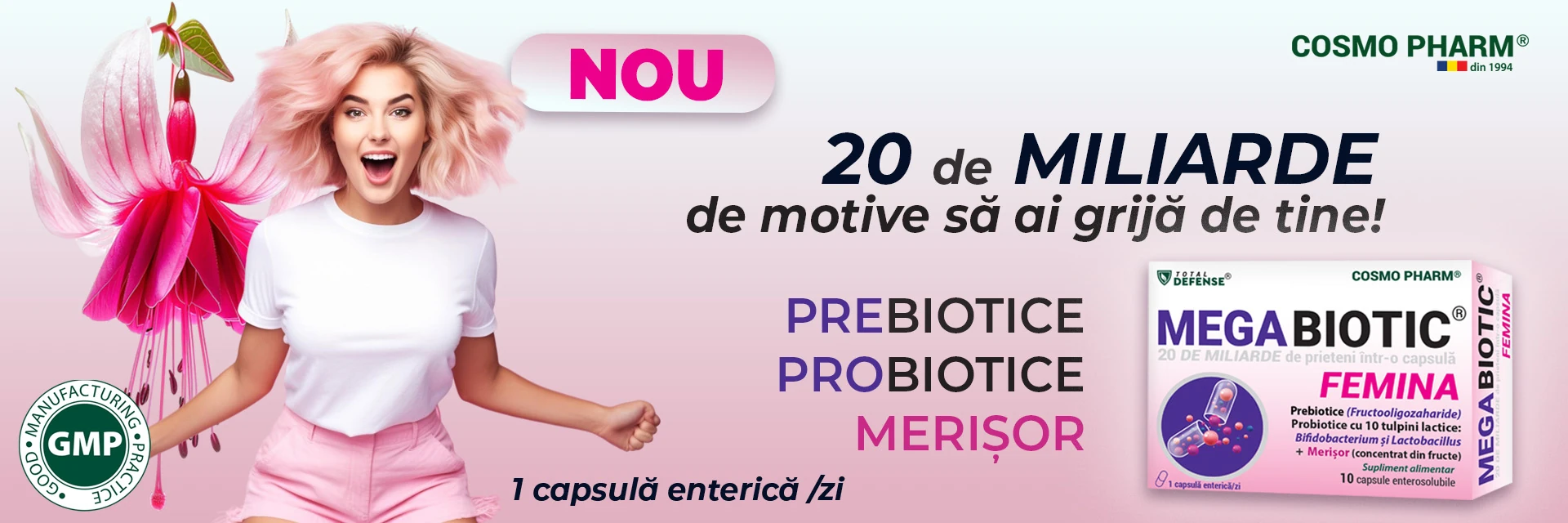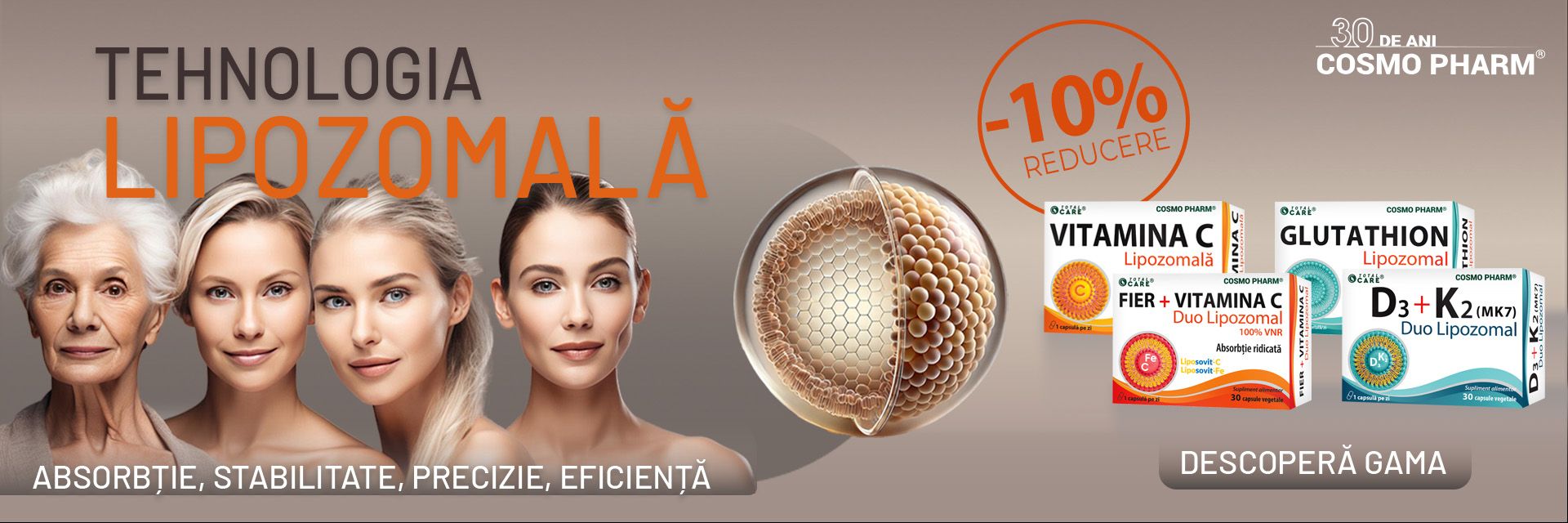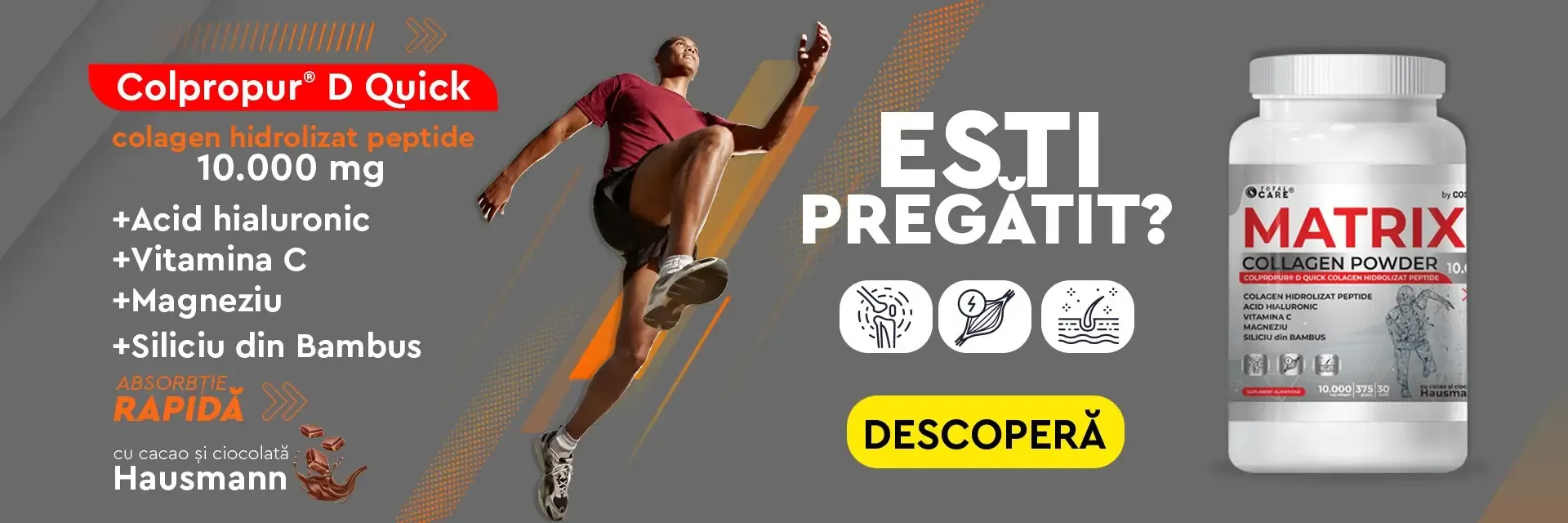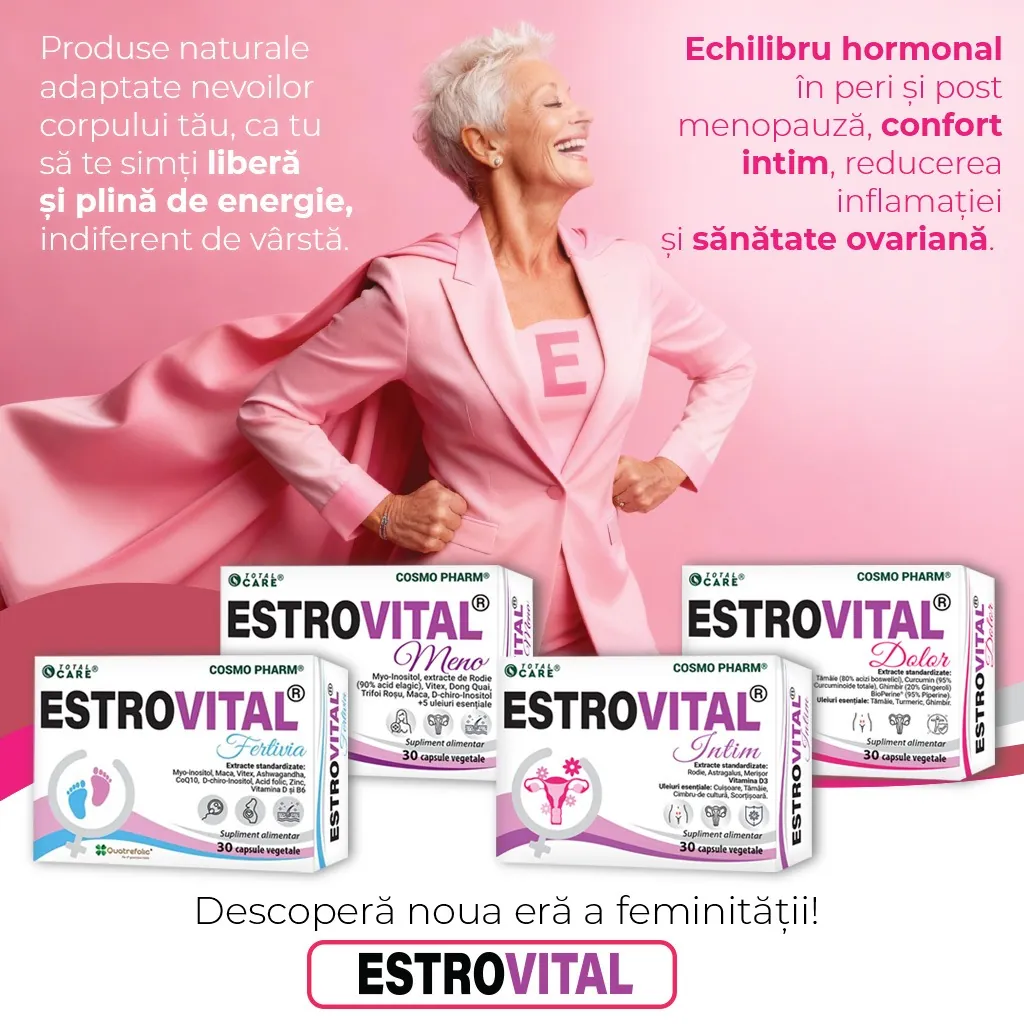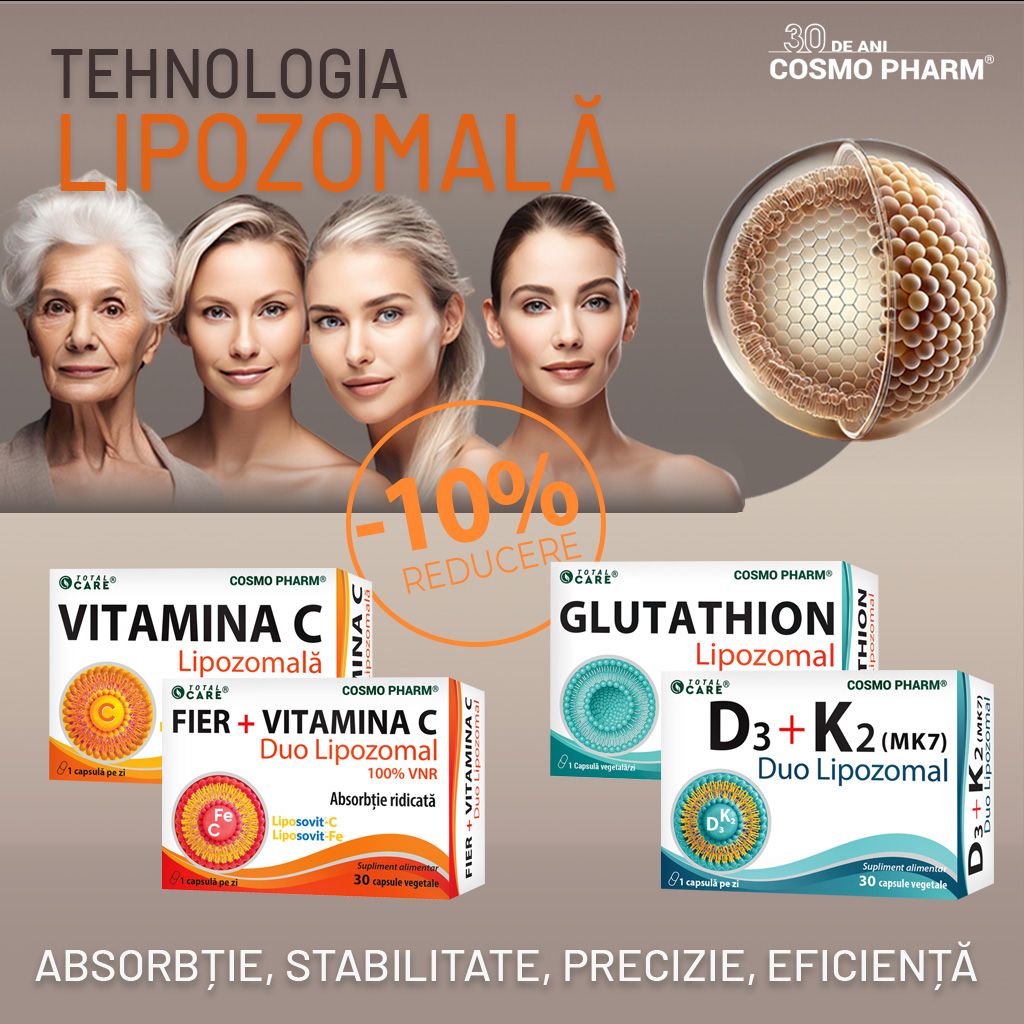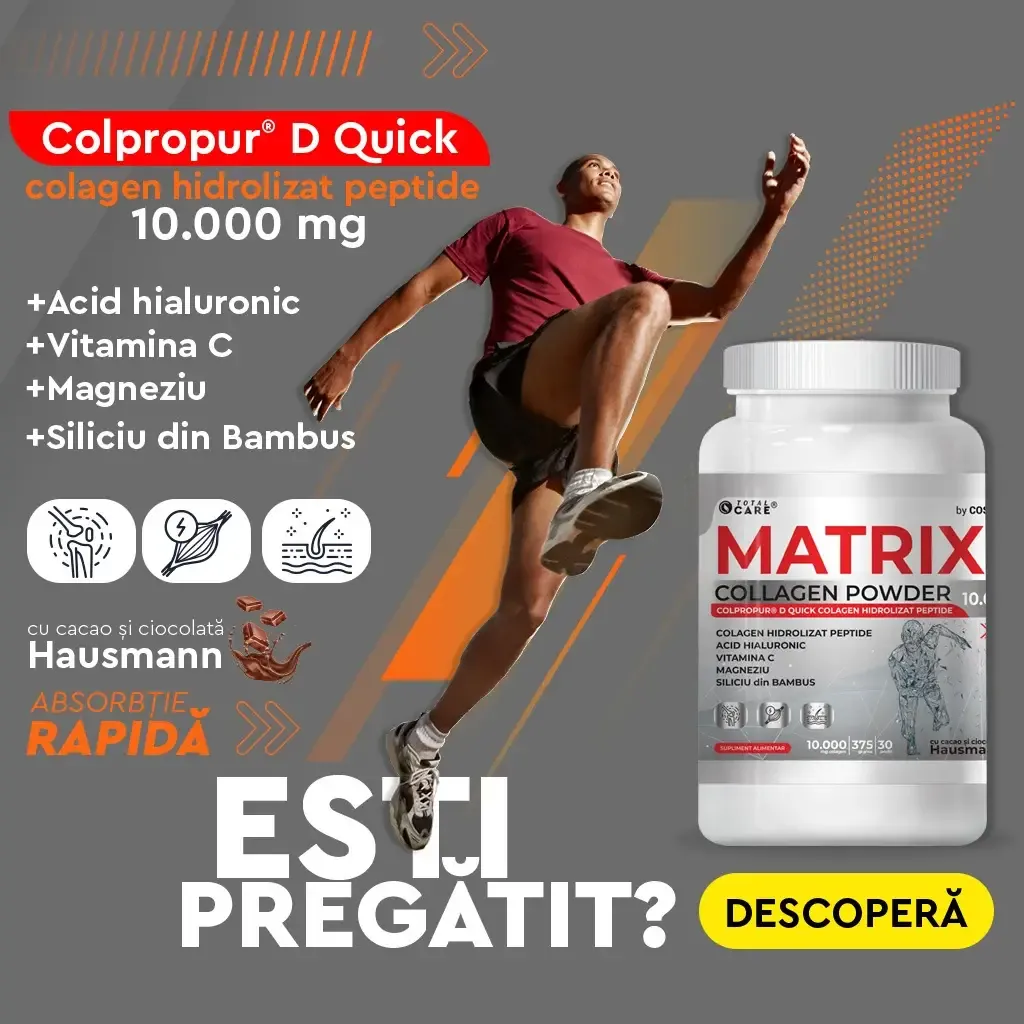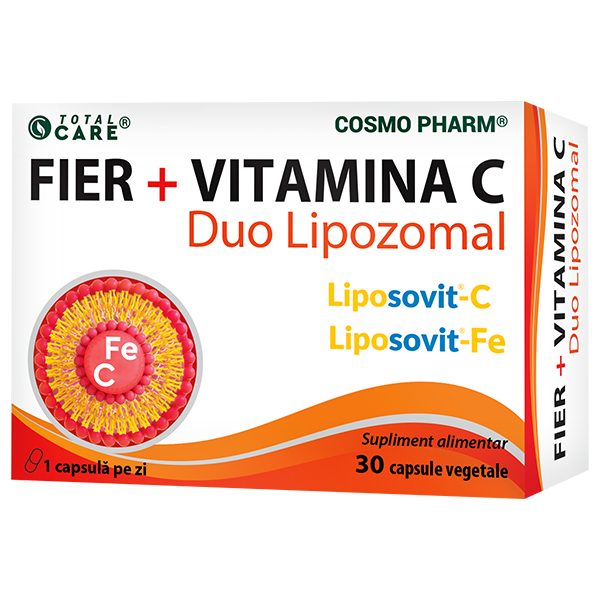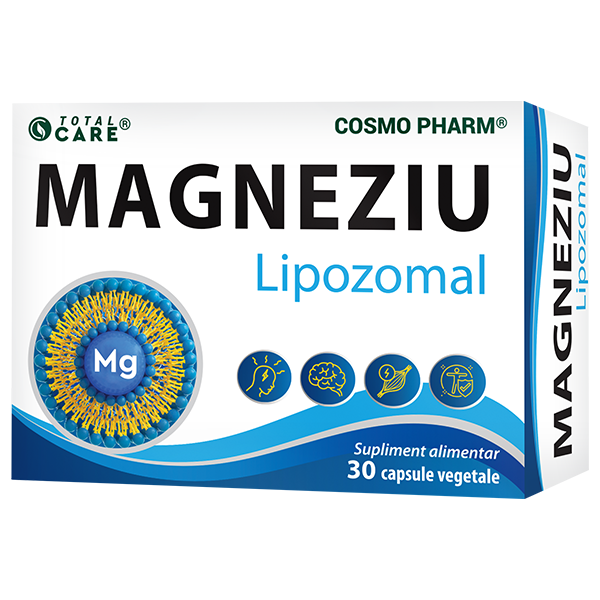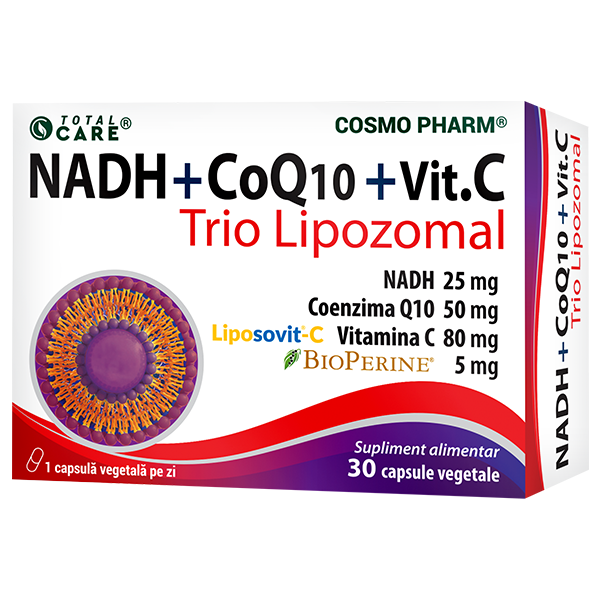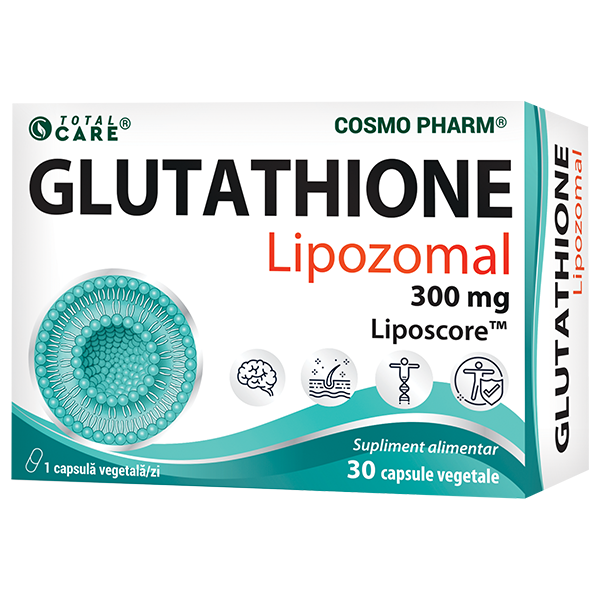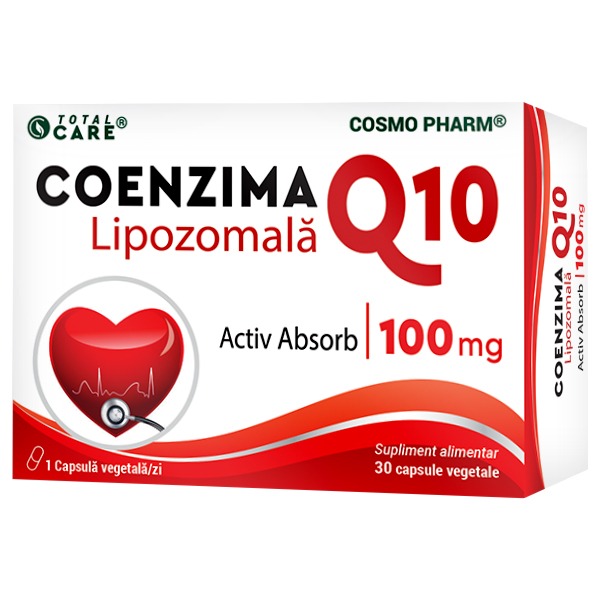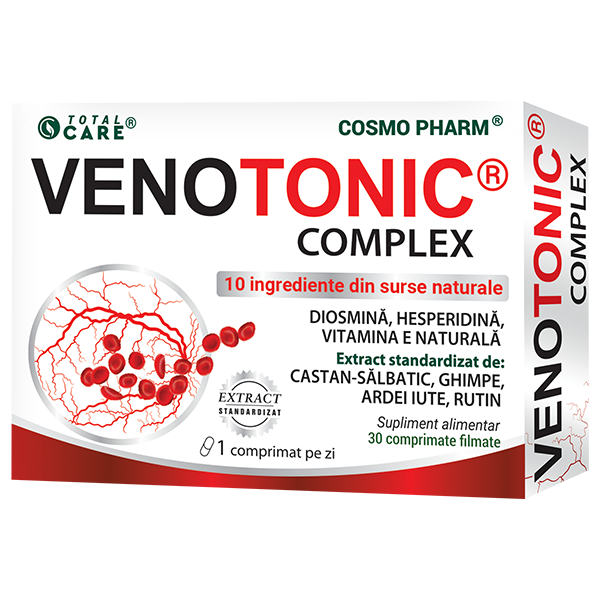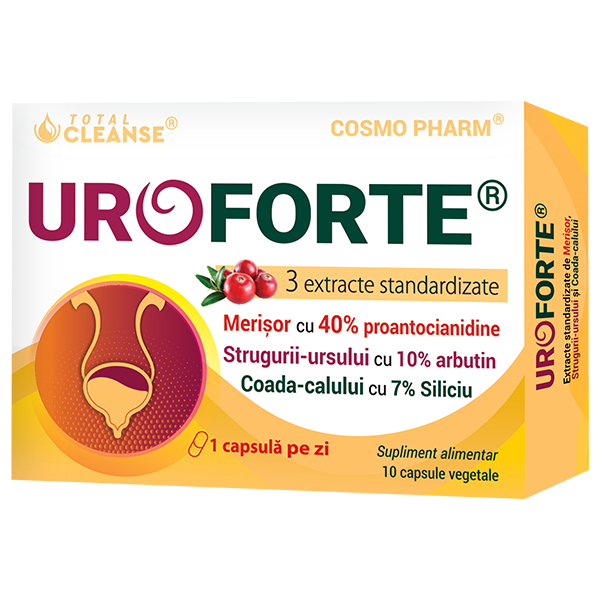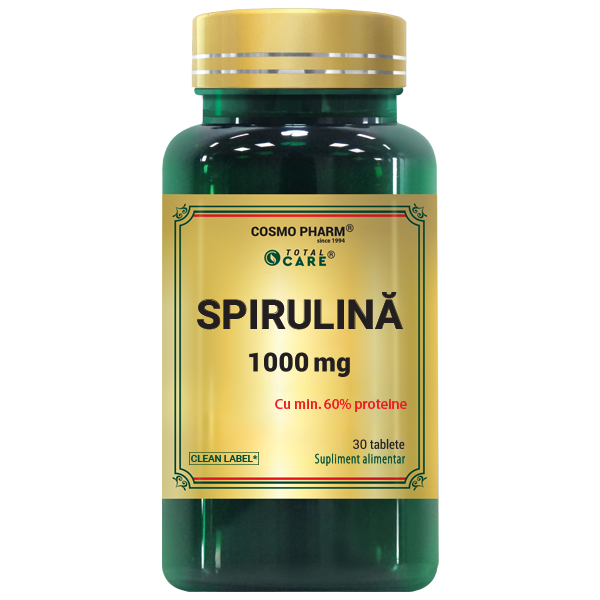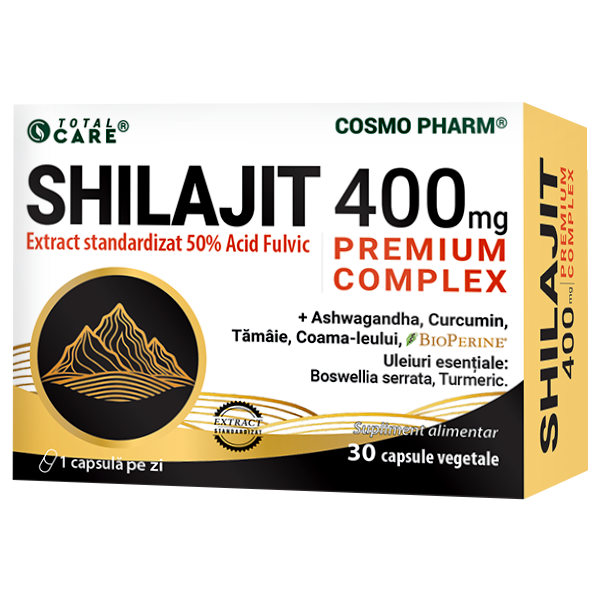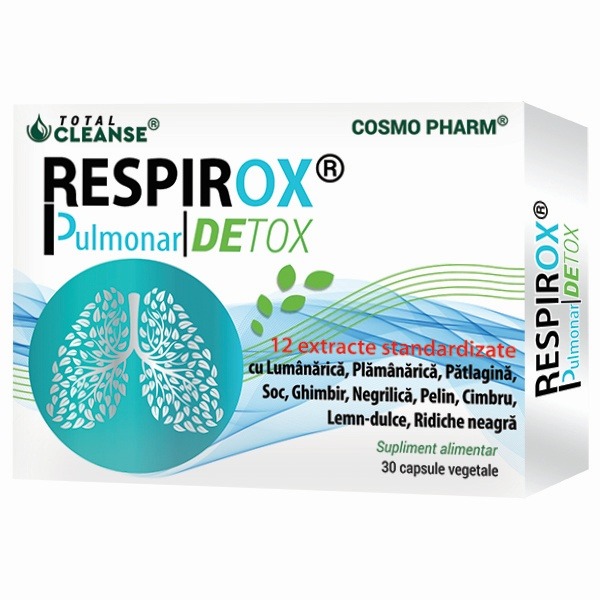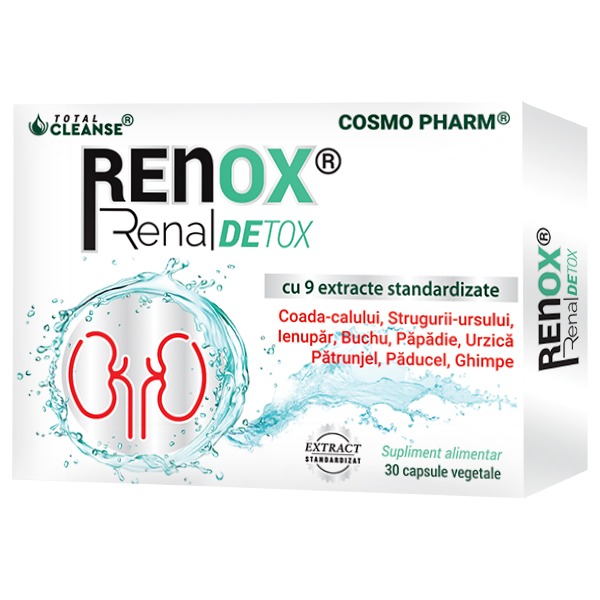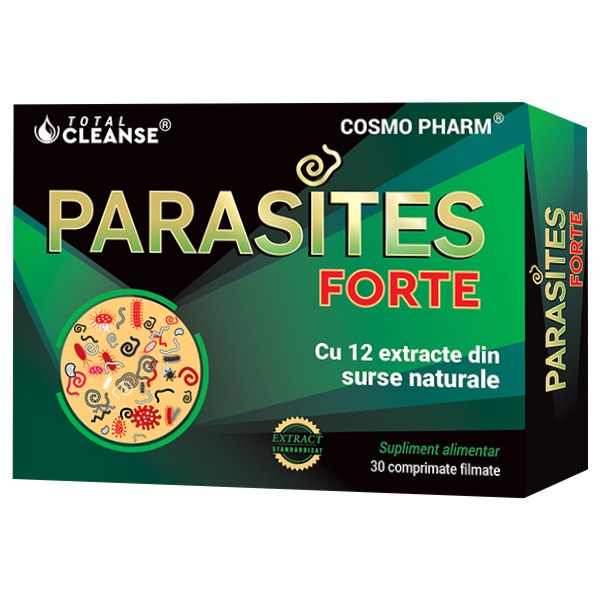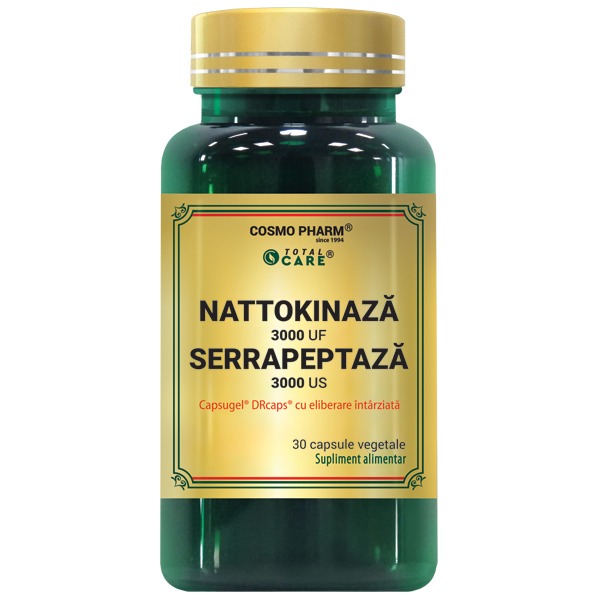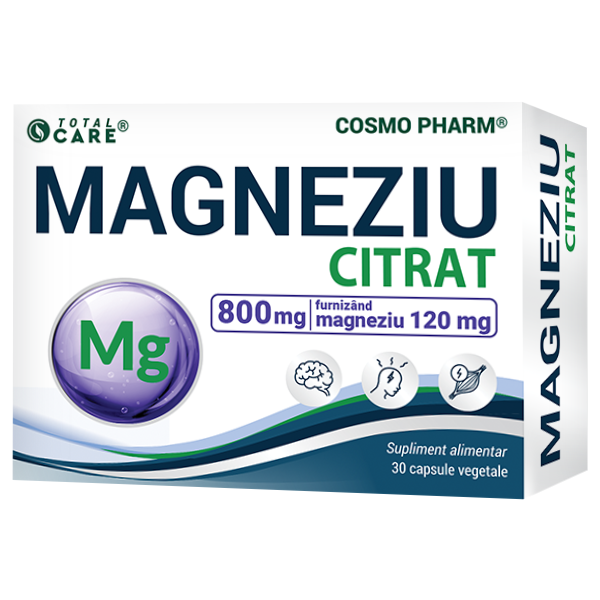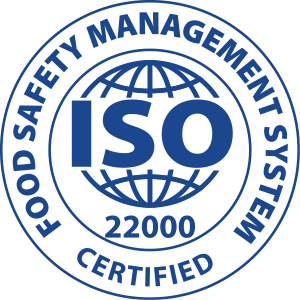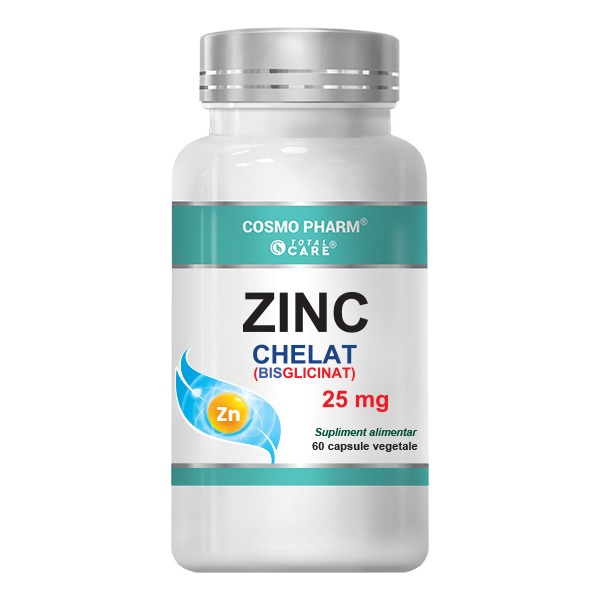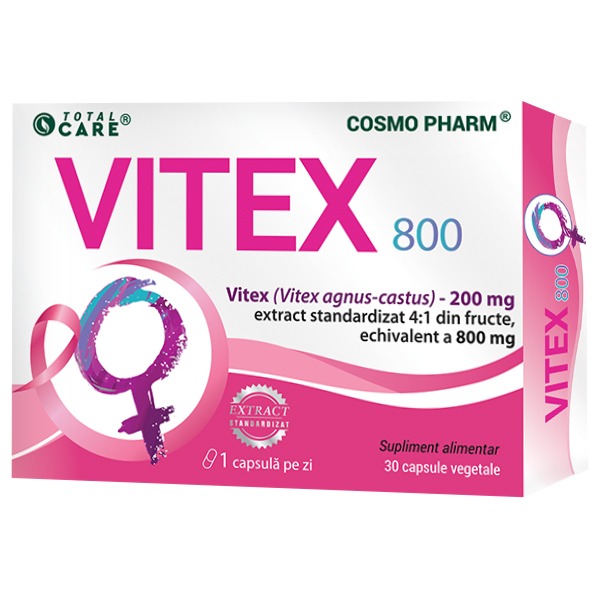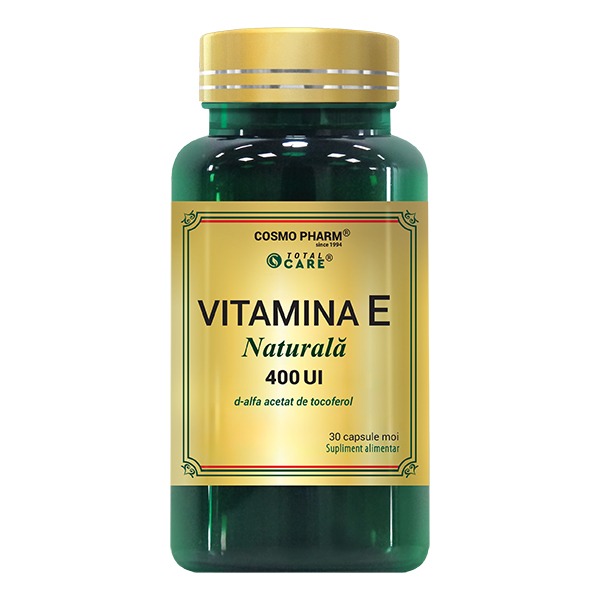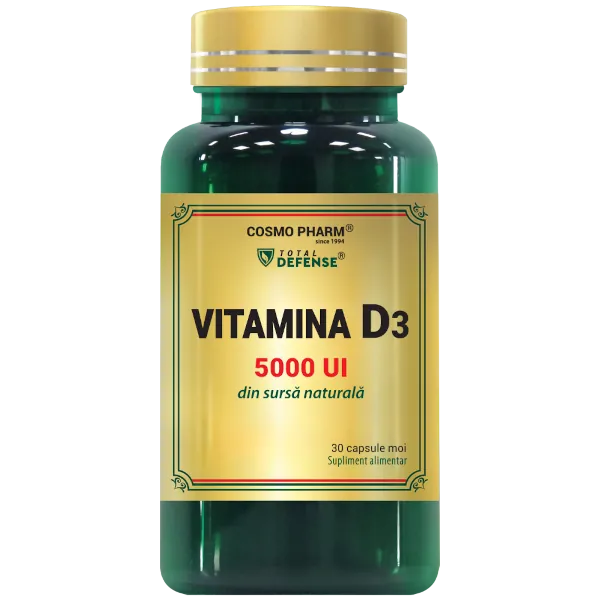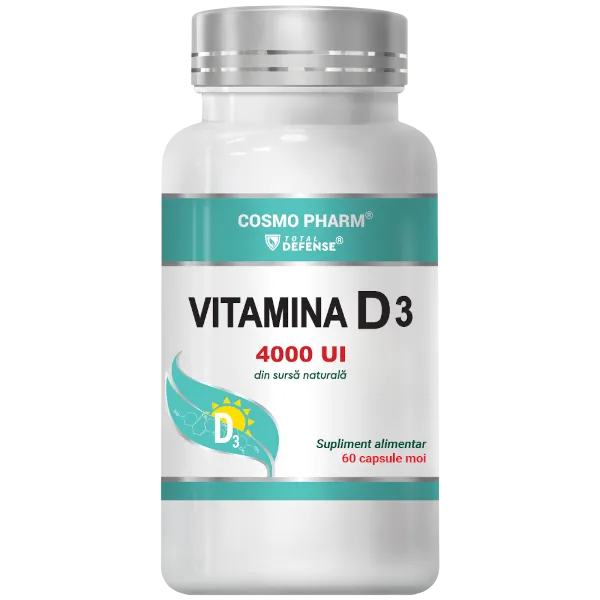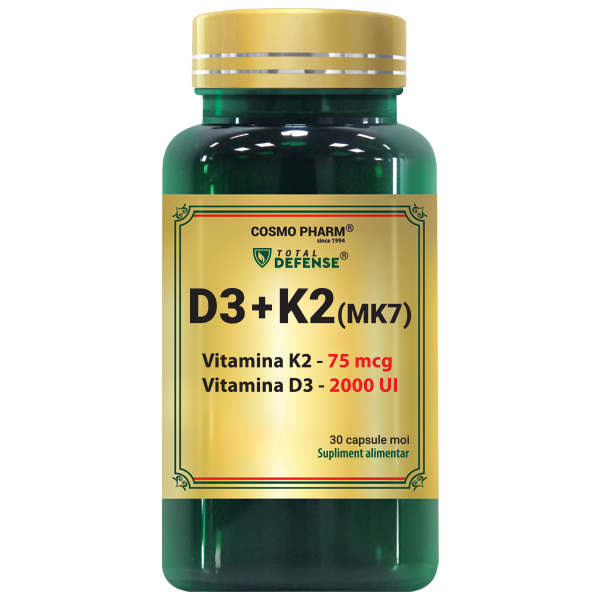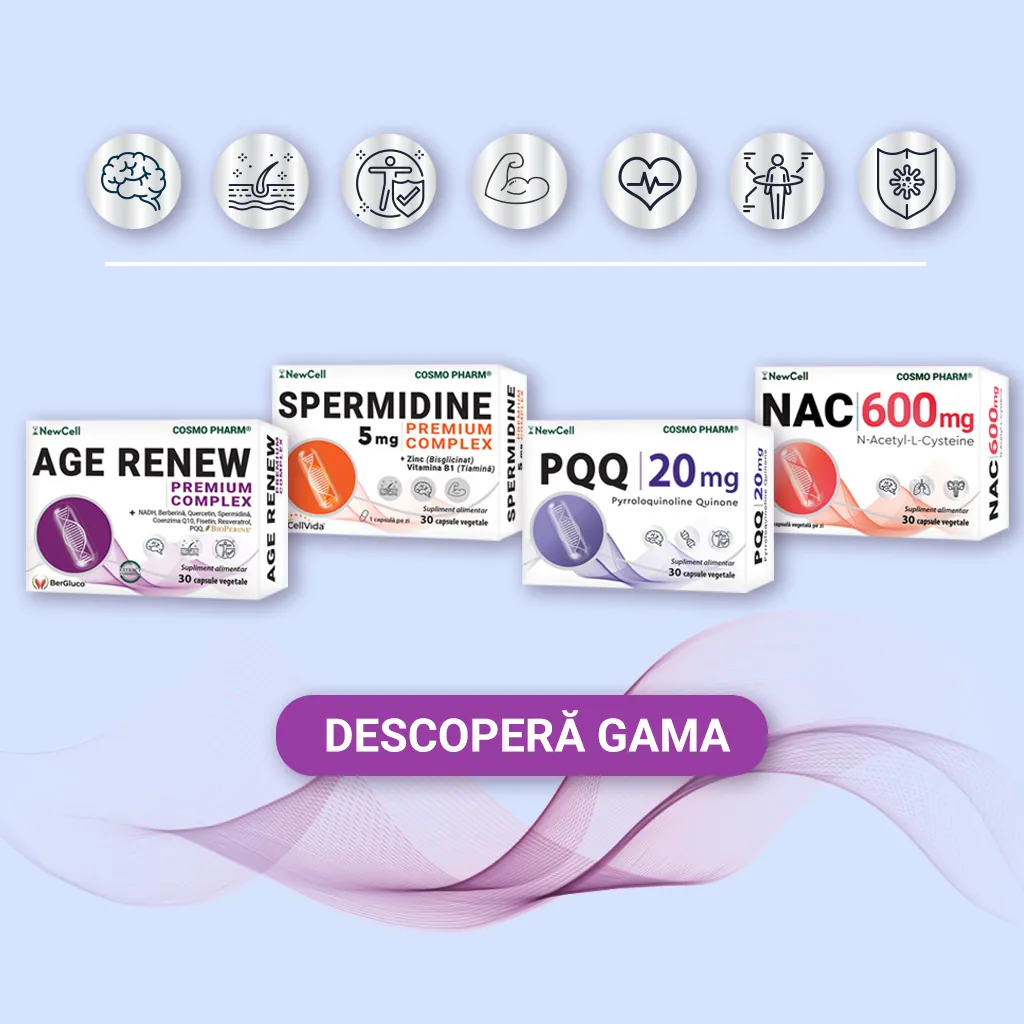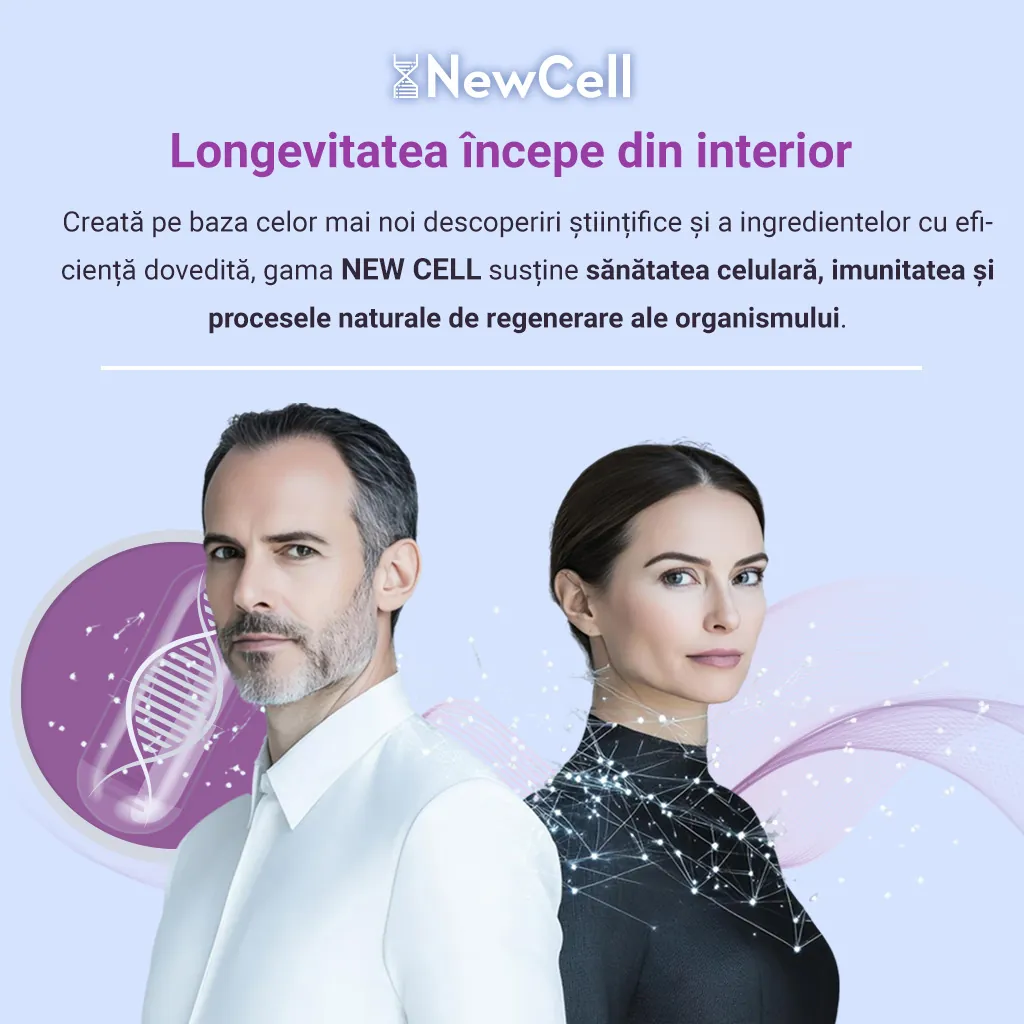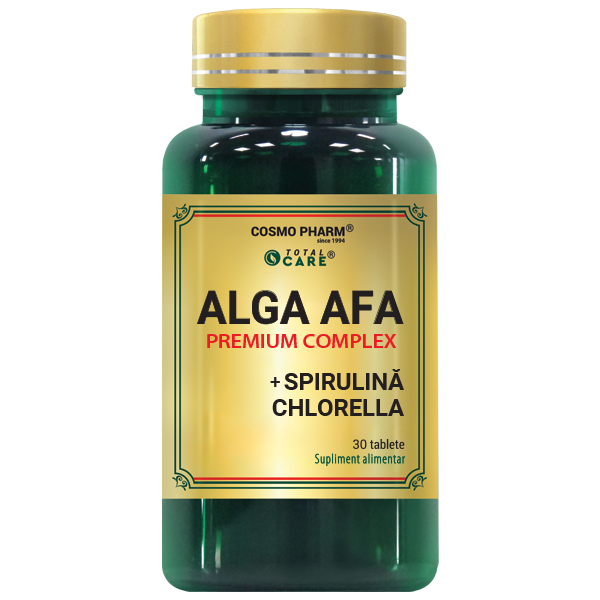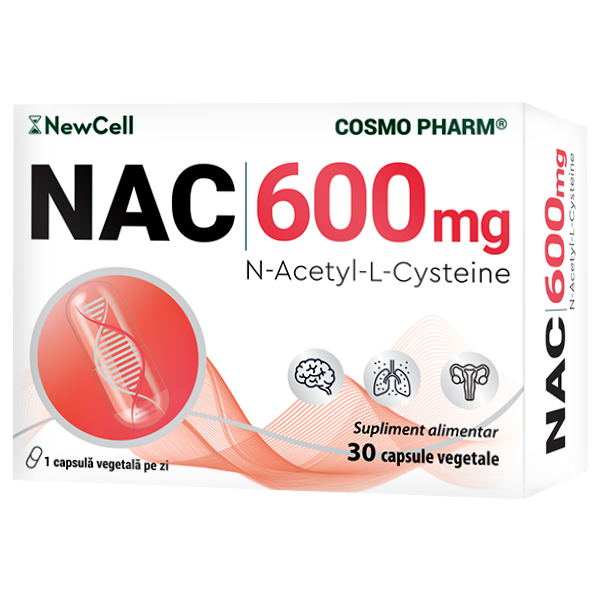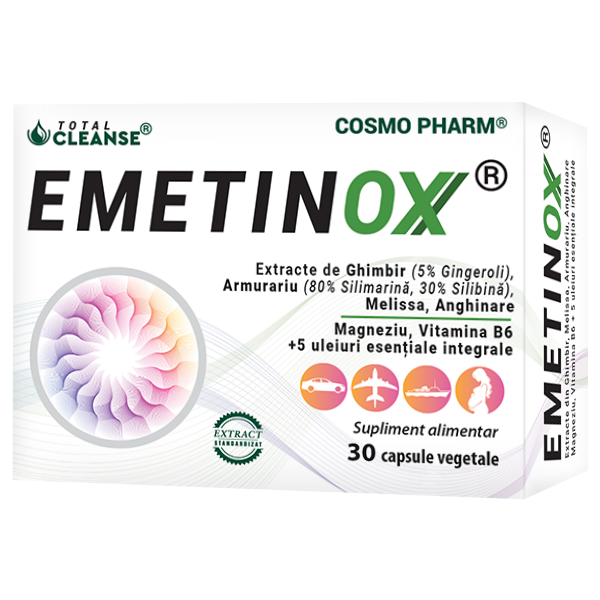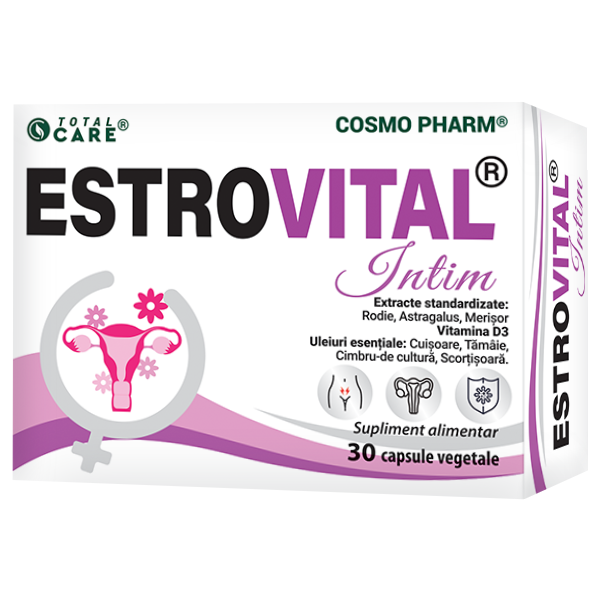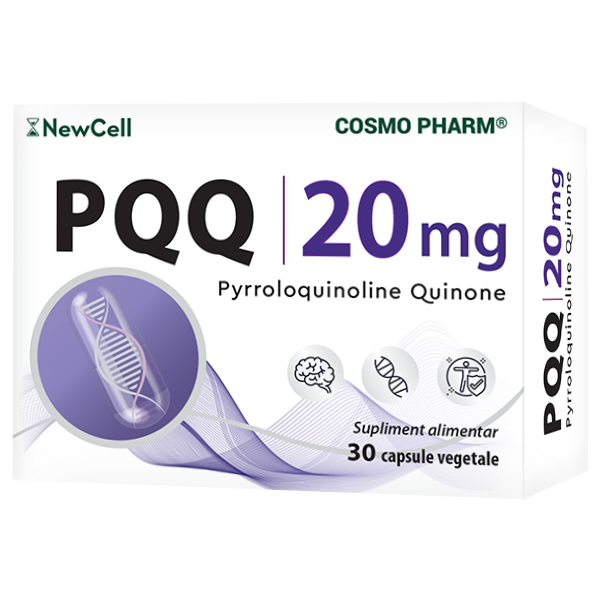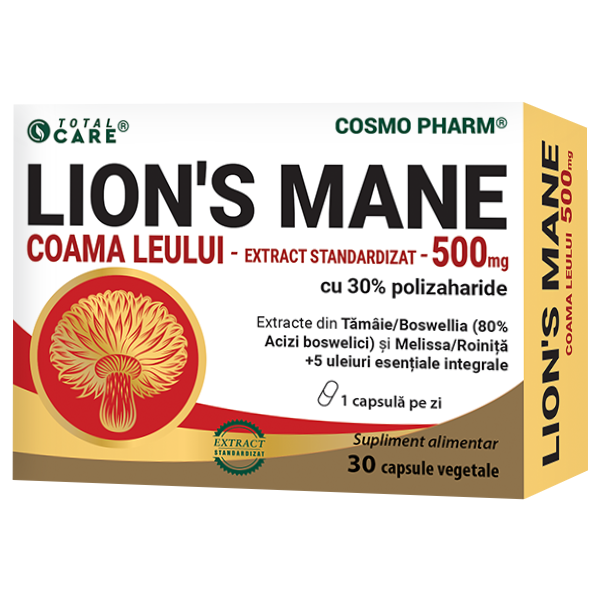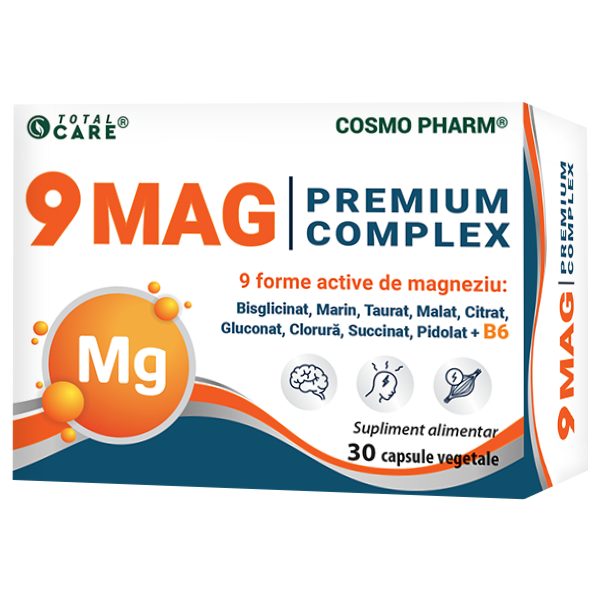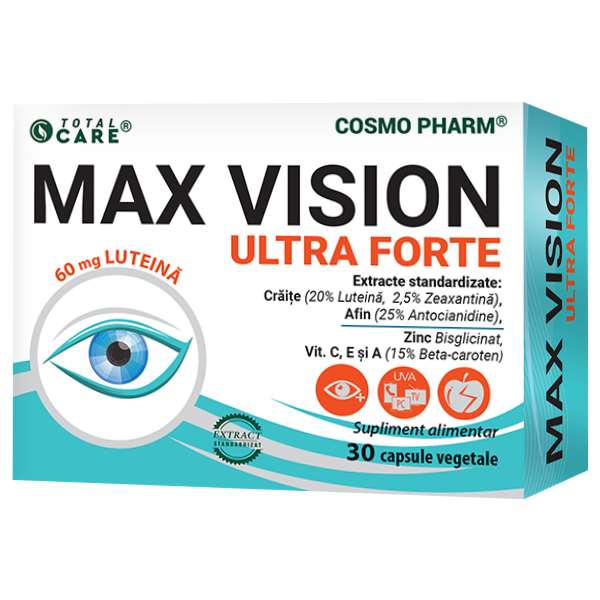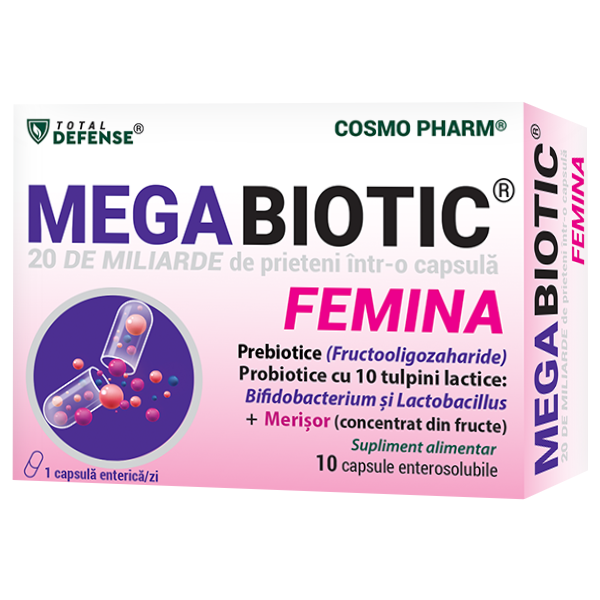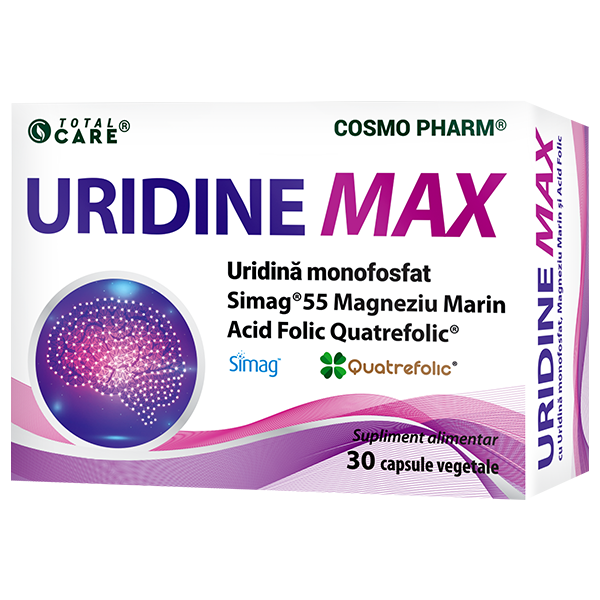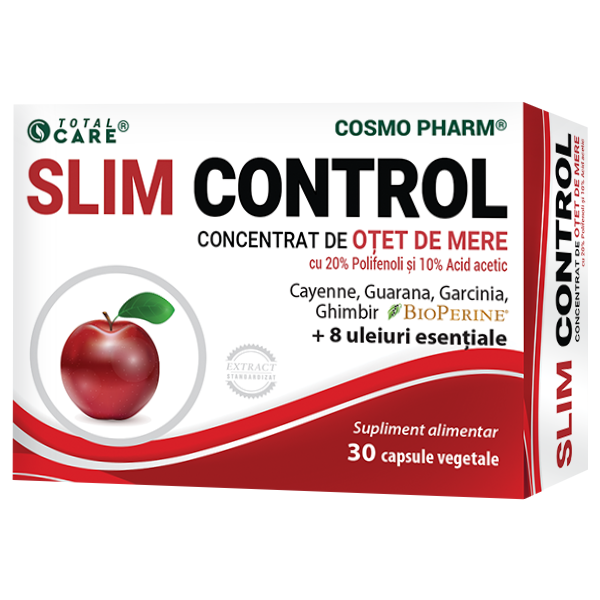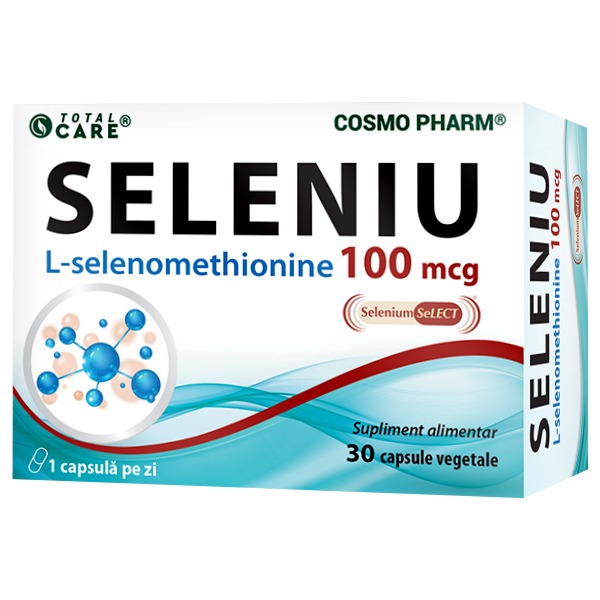Cele mai cumpărate
FIER + VITAMINA C DUO LIPOZOMAL
99.82 leiPrețul inițial a fost: 99.82 lei.74.86 leiPrețul curent este: 74.86 lei.Magneziu Lipozomal pentru absorbtie maxima
83.49 leiPrețul inițial a fost: 83.49 lei.62.62 leiPrețul curent este: 62.62 lei.NADH + COENZIMA Q10 + VITAMINA C – Trio Lipozomal
111.32 leiPrețul inițial a fost: 111.32 lei.83.49 leiPrețul curent este: 83.49 lei.GLUTATHIONE LIPOZOMAL 300 mg
112.53 leiPrețul inițial a fost: 112.53 lei.84.40 leiPrețul curent este: 84.40 lei.COENZIMA Q10 Lipozomală
116.16 leiPrețul inițial a fost: 116.16 lei.87.12 leiPrețul curent este: 87.12 lei.Venotonic Complex Pentru Varice, Hemoroizi, Ulcere Varicoase
62.92 leiPrețul inițial a fost: 62.92 lei.47.19 leiPrețul curent este: 47.19 lei.UROFORTE® Extract de Merisor Pentru Infectii Urinare
32.66 leiPrețul inițial a fost: 32.66 lei.24.49 leiPrețul curent este: 24.49 lei.Shilajit PREMIUM COMPLEX
49.61 leiPrețul inițial a fost: 49.61 lei.37.21 leiPrețul curent este: 37.21 lei.RESPIROX Pulmonar DETOX® | Regenereaza, Detoxifica
59.29 leiPrețul inițial a fost: 59.29 lei.44.47 leiPrețul curent este: 44.47 lei.Renox® Renal Detox 30 cps. Detoxifiant, Diuretic
56.87 leiPrețul inițial a fost: 56.87 lei.42.65 leiPrețul curent este: 42.65 lei.Parasites Forte Total Cleanse® – Pentru Paraziti Intestinali si Viermi
52.03 leiPrețul inițial a fost: 52.03 lei.39.02 leiPrețul curent este: 39.02 lei.PACHET Picioare usoare – Circulatie periferica, retentie de apa
119.79 leiPrețul inițial a fost: 119.79 lei.89.84 leiPrețul curent este: 89.84 lei.Pachet Picioare Umflate – Curata Limfa, Elimina Apa
117.38 leiPrețul inițial a fost: 117.38 lei.88.03 leiPrețul curent este: 88.03 lei.PACHET LAX & CLEANSE – LAXATIV NATURAL SI DETOX COLON
99.22 leiPrețul inițial a fost: 99.22 lei.74.41 leiPrețul curent este: 74.41 lei.NATTOKINAZA SERRAPEPTAZA
150.04 leiPrețul inițial a fost: 150.04 lei.112.53 leiPrețul curent este: 112.53 lei.Magneziu Citrat 800 mg – Magneziu pur elemental 120 mg
33.28 leiPrețul inițial a fost: 33.28 lei.24.96 leiPrețul curent este: 24.96 lei.Promoții
Zinc Bisglicinat (chelat) 25 mg biodisponibilitate ridicata
30.25 leiPrețul inițial a fost: 30.25 lei.22.69 leiPrețul curent este: 22.69 lei.Vitex 800 – Supliment Menopauza – Premenopauza
24.20 leiPrețul inițial a fost: 24.20 lei.18.15 leiPrețul curent este: 18.15 lei.VITAMINA E Naturala D-alpha Tocoferol Capsule
68.97 leiPrețul inițial a fost: 68.97 lei.51.73 leiPrețul curent este: 51.73 lei.VITAMINA D3 5000 UI
27.22 lei – 45.37 leiInterval de prețuri: 27.22 lei până la 45.37 leiVitamina D3 4000 UI, 60 capsule Cosmo Pharm®
41.29 lei – 49.46 leiInterval de prețuri: 41.29 lei până la 49.46 leiVitamina D3 2000 UI + K2 (MK-7)
29.95 lei – 54.45 leiInterval de prețuri: 29.95 lei până la 54.45 leiTransport gratuit
la comenzi de peste 150 leiOferte zilnice
cu reduceri până la 30%Retur gratuit
în 30 de zilePlătește în siguranță
on-line cu card bancarBonus special
pentru abonații la newsletterNou în portofoliu
Alga AFA COMPLEX • Chlorella • Spirulina – complex premium 3-în-1 cu microalge
59.89 lei – 108.90 leiInterval de prețuri: 59.89 lei până la 108.90 leiNAC 600 (N-Acetilcisteină)
39.93 leiPrețul inițial a fost: 39.93 lei.29.95 leiPrețul curent este: 29.95 lei.EMETINOX®
42.35 leiPrețul inițial a fost: 42.35 lei.31.76 leiPrețul curent este: 31.76 lei.ESTROVITAL® INTIM
72.60 leiPrețul inițial a fost: 72.60 lei.54.45 leiPrețul curent este: 54.45 lei.PQQ 20 mg (Pyrroloquinoline Quinone)
90.75 leiPrețul inițial a fost: 90.75 lei.68.06 leiPrețul curent este: 68.06 lei.LION’S MANE – Coama-Leului PREMIUM COMPLEX
49.61 leiPrețul inițial a fost: 49.61 lei.37.21 leiPrețul curent este: 37.21 lei.Shilajit PREMIUM COMPLEX
49.61 leiPrețul inițial a fost: 49.61 lei.37.21 leiPrețul curent este: 37.21 lei.VITAMINA D3 5000 UI
27.22 lei – 45.37 leiInterval de prețuri: 27.22 lei până la 45.37 leiVitamina D3 2000 UI + K2 (MK-7)
29.95 lei – 54.45 leiInterval de prețuri: 29.95 lei până la 54.45 lei9 MAG PREMIUM COMPLEX®
49.61 leiPrețul inițial a fost: 49.61 lei.37.21 leiPrețul curent este: 37.21 lei.MAX VISION® ULTRA FORTE – claritate naturala pentru ochii tai.
61.71 leiPrețul inițial a fost: 61.71 lei.46.28 leiPrețul curent este: 46.28 lei.MEGABIOTIC® FEMINA 20 Miliarde de Prieteni într-o capsula
44.77 leiPrețul inițial a fost: 44.77 lei.33.58 leiPrețul curent este: 33.58 lei.VITAMINA D3 5000 UI
27.22 lei – 45.37 leiInterval de prețuri: 27.22 lei până la 45.37 leiSari la conținutVitamina D3 2000 UI + K2 (MK-7)
29.95 lei – 54.45 leiInterval de prețuri: 29.95 lei până la 54.45 leiURIDINE MAX
78.65 leiPrețul inițial a fost: 78.65 lei.58.99 leiPrețul curent este: 58.99 lei.THYMUS VULGARIS – Ulei Esential De Cimbru Uz Intern 10 ml
48.40 leiPrețul inițial a fost: 48.40 lei.36.30 leiPrețul curent este: 36.30 lei.TEA TREE Ulei Esential De Arbore De Ceai 10ml 100% Pur
48.40 leiPrețul inițial a fost: 48.40 lei.36.30 leiPrețul curent este: 36.30 lei.SLIM CONTROL – Concentrat cu Oțet de mere
44.17 leiPrețul inițial a fost: 44.17 lei.33.13 leiPrețul curent este: 33.13 lei.Shilajit PREMIUM COMPLEX
49.61 leiPrețul inițial a fost: 49.61 lei.37.21 leiPrețul curent este: 37.21 lei.SELENIUM SELECT®
22.99 leiPrețul inițial a fost: 22.99 lei.17.24 leiPrețul curent este: 17.24 lei.RESPIROX Pulmonar DETOX® | Regenereaza, Detoxifica
59.29 leiPrețul inițial a fost: 59.29 lei.44.47 leiPrețul curent este: 44.47 lei.PQQ 20 mg (Pyrroloquinoline Quinone)
90.75 leiPrețul inițial a fost: 90.75 lei.68.06 leiPrețul curent este: 68.06 lei.Parasites Forte Total Cleanse® – Pentru Paraziti Intestinali si Viermi
52.03 leiPrețul inițial a fost: 52.03 lei.39.02 leiPrețul curent este: 39.02 lei.![Acasă]()
Alege din peste
160 de produse
![Acasă]()
De ce să alegi
COSMO PHARM![Acasă]() Formule cu biodisponibilitatea maximă, pentru efecte cât mai rapide, cu doar 1-2 capsule pe zi.
Formule cu biodisponibilitatea maximă, pentru efecte cât mai rapide, cu doar 1-2 capsule pe zi.![Acasă]() Extracte standardizate care garantează aceeași eficiență a produsului indiferent de loc.
Extracte standardizate care garantează aceeași eficiență a produsului indiferent de loc.![Acasă]() Ingrediente din culturi certificate organic, de la cei mai mari producători mondiali de materie primă din domeniu.
Ingrediente din culturi certificate organic, de la cei mai mari producători mondiali de materie primă din domeniu.![Acasă]() Suplimente alimentare dezvoltate în laborator de cercetare la cele mai avansate standarde în domeniu.
Suplimente alimentare dezvoltate în laborator de cercetare la cele mai avansate standarde în domeniu.![Acasă]() Produse potrivite pentru vegetarieni, fără alergeni, conservanți, coloranți, arome artificiale, zahăr, sodiu, grău/gluten, ouă și lactate.
Produse potrivite pentru vegetarieni, fără alergeni, conservanți, coloranți, arome artificiale, zahăr, sodiu, grău/gluten, ouă și lactate.![Acasă]() Unitate de producție complet auto sustenabilă, prietenoasă cu mediul înconjurător si ambalaje din materiale reciclabile.
Unitate de producție complet auto sustenabilă, prietenoasă cu mediul înconjurător si ambalaje din materiale reciclabile.Sfatul specialistului
![Acasă]()
![Acasă]()
ABONEAZĂ-TE LA NEWSLETTER
ȘI PRIMEȘTI INSTANT10% DISCOUNT*
* Reducerea se poate cumula cu alte oferte.
![Acasă]()



